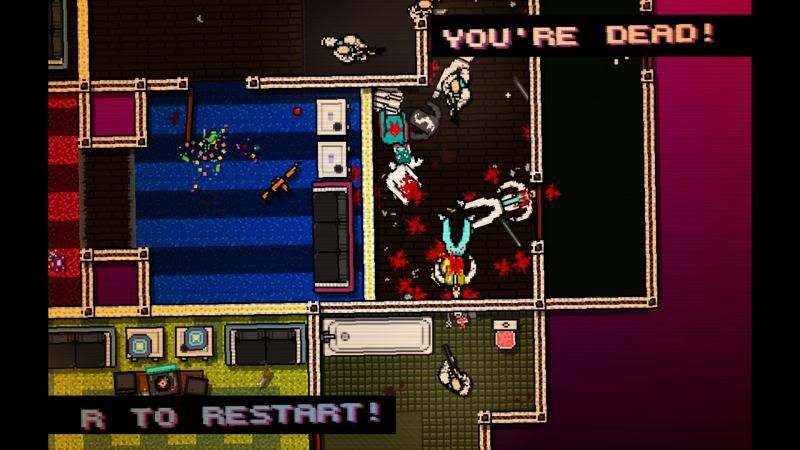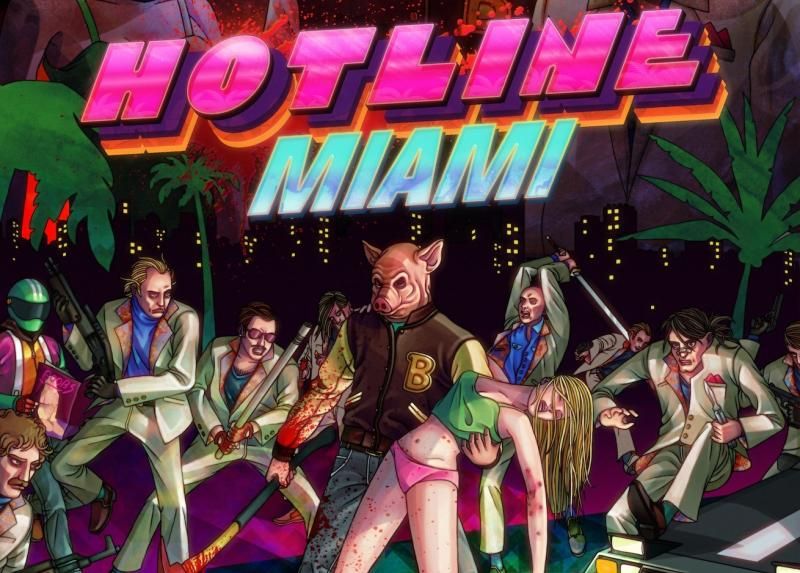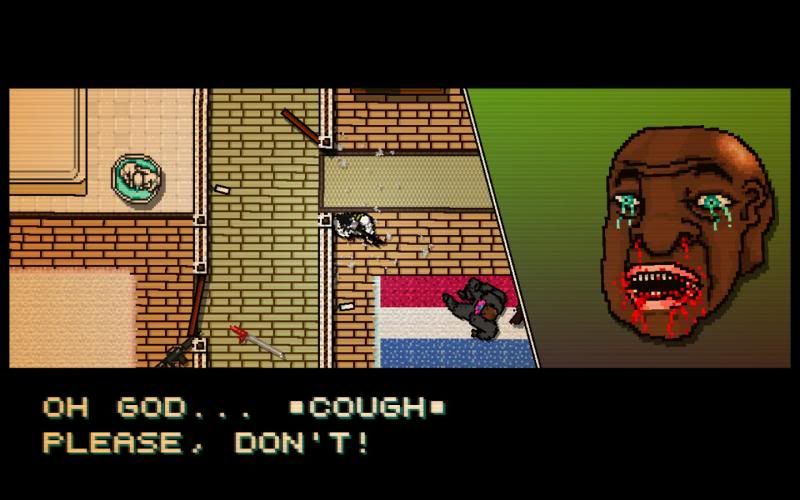
You know it’s a rough day when a post doesn’t go up until the evening. Oof. Anyway, here’s a bit I wrote about failure. Probably appropriate! My actual review of Hotline Miami can be found here.
I’ve been writing a lot about failure lately. This is partially because I believe that we do learn more from our failures from our successes, and also because I know there are folks out there who like to know they’re not alone in the struggles they’re encountering. I am, admittedly, one of them. I continue to maintain that the important part is not the failures, but rather our reaction to them; does failure prevent us from moving forward, or inspire us to redouble our efforts? I often find a microcosm of this frustration and determination in video games, especially uncompromising ones like Hotline Miami.
For those of you unaware of the game, here’s a quick overview. It’s the 80s, an era infused with bright neon colors and oversaturated sound, and you are cast as a nameless individual taking job offers from your answering machine. They sound innocuous enough: babysitting, taking out the trash, and so on. But it’s all code for killing. You’re a contract killer and you walk into house after house, punching and bludgeoning and shooting your way to victory. You do so while wearing a rubber animal mask, just one of many indications that whoever you are, you aren’t right in the head.
What sets Hotline Miami apart from other games is the overall feel and timbre of the gameplay. You enter the homes of your targets from a top-down perspective, something not often seen in modern games, and everything is pixelated and vibrant in color, rather than rendered in 3D and drenched in modern, realistic palettes. This is probably a good thing given the level of brutality on display. People, human beings, are punched hard, have their bones broken, get their skulls smashed repeatedly against hard floors, and are shot, stabbed, bludgeoned, and sliced to death. They even get savaged by dogs. And more often than not, this will be happening to you, since you’re not going to get it right the first time. You’re going to fail.
Much like Super Meat Boy, the appeal of this game comes from the challenges it presents the player. Without hints, without cheats, without even a clear indication of how the player should proceed, the game sets up the pieces and lets the player have at it. I think this is part of the reason that the graphics look the way they do: the violence is not the point. Oh, it’s visceral to be certain, but reduced to this fidelity it verges more on goofy than disturbing. The true meat of the game is in its challenges, not in blood and bone and bullets. It doesn’t teach players to shoot people with different skin; it teaches them to keep trying even after you fail over and over and over again.
The message of Hotline Miami is not one regarding violence or madness or the 80s being even more fucked up than we remember. Those are just the trappings, the rails on which the story hums along. Within that story, through its mechanics, the game’s message becomes more clear: You’re going to fail. Keep trying anyway. Bludgeon the challenge the way you bludgeon that mook with a shotgun. Sooner or later, you’ll get it right, and it will feel awesome when you do.
I’m not sure what this says about me, but I’m okay with turning a few pixelated faces to paste to get that awesome feeling. And I know I’ll get it in other areas, too.




